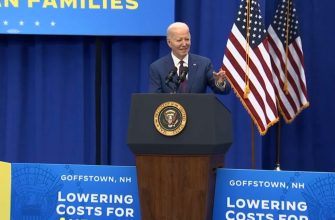‘The Kneeling Man: My Father’s Life as a Black Spy Who Witnessed the Assassination of Martin Luther King’
By Leta McCollough Selezky
Counterpoint, 304 pages
‘Also a Poet: Frank O’Hara, My Father, and Me’
By Ada Calhoun
Grove Press, 272 pages
The kneeling man is Leta McCollough Selezky’s father, an undercover Memphis police officer photographed attempting with a towel to stanch the blood after a bullet had exploded in Martin Luther King Jr.’s jaw.
Marrell “Mac” McCollough, who had infiltrated a militant Black Power group, went on to become a CIA agent. He was allowed to tell his daughter who employed him, but not what his mission was. She saw him intermittently and only pieced together the story of his life in fits and starts over several years. Sometimes she was reluctant to know the full truth, but in the end she felt compelled to write an engrossing narrative that adumbrates the story of a life that becomes her own.
Much the same can be said of Ada Calhoun’s effort to overcome the fraught relationship with her father, the poet and critic Peter Schjeldahl. The writer-daughter of a father who flat out said his writing came before anything else frames this memoir-biography as her effort to complete the biography of charismatic poet Frank O’Hara that her father had abandoned, as a means of rectifying his failure and redeeming their relationship.
Ms. Seletsky and Ms. Calhoun do the work of biographers — in the process getting to see their fathers as subjects, not just family members. Ms. Calhoun has her father’s tape-recorded interviews to use as a starting point for her own contacts with O’Hara’s friends and his surviving sister. Ms. Calhoun believes that she can improve on her father’s maladroit interviews, especially with O’Hara’s recalcitrant sister, but is shocked that she is no more successful in winning the sister’s support.
Ms. Seletzky has her father’s notes, recast in her own narrative. Like Ms. Calhoun, she has to prod her father to reveal himself, and the secrets that have been kept from her. He proves to be somewhat more cooperative than Ms. Calhoun’s self-absorbed father, but as with Peter Schjeldahl’s daughter, Mac McCollough’s daughter is shocked to discover how much she has to learn about a father emerging from a segregated society to forge an identity that has not found room for a family he left behind.
The audiobook production of “Also a Poet” is especially valuable because it includes excerpts from Schjeldahl’s tape-recorded interviews with O’Hara’s friends. Seldom, as in this audiobook, are readers able to have access to a biographer’s raw material as it is transformed into a narrative.
Both of these books are what might be called a subgenre, the daughter-father biography. There is always a fascinating tension in the narrative, a kind of conflict between the daughter’s memories of childhood, of what was and what, through research, she comes to appreciate in quite a different way as an adult, a mother, and, in Mrs. Seletzky’s case, a litigator turned essayist.
Susan Cheever’s “Home Before Dark: A Biographical Memoir of John Cheever by His Daughter” (1984) reflects in its title the cross-breeding of genres that is in the flux of the journals, letters, and memories that daughters draw upon, as Victoria Price does in “Vincent Price: A Daughter’s Biography” (1999).
For “Ronald Colman: A Very Private Person,” (1974), Juliet Colman did the kind of interviewing that is expected of biographers, and yet, pertaining to certain crucial experiences in her father’s life — like his wounding in World War I that ended his military service — she had to confess that he rarely spoke of them.
Ms. Colman put her father’s predicament succinctly: “Nineteen fourteen had nothing to do with the rest of his life, and yet everything to do with it, because nobody returned home quite the same.” The predicament is also her own. What the father cannot or will not say is part of what eludes the daughter, who nonetheless exposes, in a biography, what a reticent man would not dare to disclose.
Mr. Rollyson’s work in progress is “Ronald Colman: Hollywood’s Gentleman Hero.”








